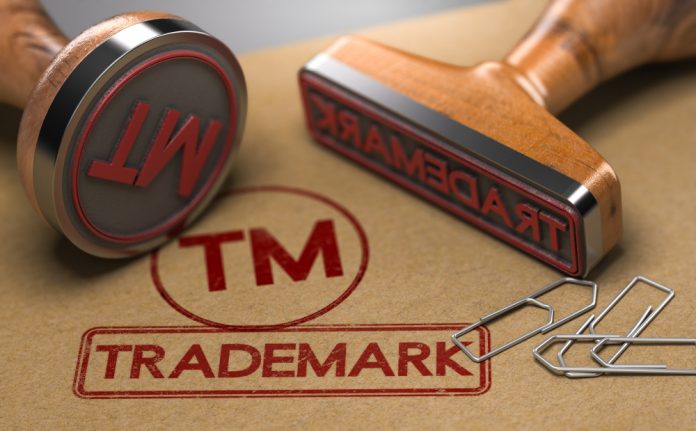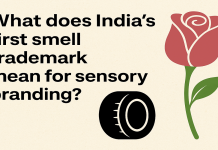This article is written by Ms. Shivani Agarwal, currently pursuing B.Com.LLB (Hons) from Institute of Law, Nirma University. This is a comprehensive article which discusses in detail the recent important judgments by the Supreme Court of India regarding trademarks.
Table of Contents
Introduction
One may have encountered words such as hallmark, brandmark, etc. These words can be used synonymously with a trademark. It is possible to view a trademark as a formally registered symbol that identifies a specific product’s maker or supplier. Trademark is a branch or a category of intellectual property, alongside some other categories such as copyrights, patents, etc.
A trademark is crucial to any company, whether it is a small business or a considerable business engaged in various business lines. Trademarks are a mark or impression that creates an image about a company like the Amul girl has its distinctiveness that can be seen in various ads, huge sports companies like Nike, Adidas, and Puma have their own unique and eye-catchy logos. The most common industry where the importance of trademarks can be seen is the automobile industry; people are able to identify the car simply by looking at the logo of the brand.
Types of trademark and usage of trademark
There are basically four different types of trademarks:
Service mark
A service mark is any name, logo, device, or word symbol used deliberately to identify and separate one provider’s services from others. Service marks do not apply to material goods but merely to the allocation of resources. A service mark plays a crucial role in boosting sales of a product or service. We can see service marks being used in day-to-day services such as hotel services, housing development services, sponsorship, etc.
Certification mark
This is a mark that confirms any act that has been committed or of any judicial formality that has been met. The certification mark shall signify that specific attributes of the products or services used are accredited, and the certification mark shall be specified in the Trademark Act, 1999. These kinds of trademarks are meant for identifying goods or services in connection with those used in the business.
Trade dress
These are the characteristics of the external presentation of a construction product or design or its packaging that signify to consumers its source. It is an intellectual property type. To shield customers from the packaging or presentation of goods framed to resemble other products, trade dress protection is applied.
Collective mark
This kind of mark is used by a collective group such as employees and a collective organization to identify the source of goods and services. A very prime example of collective mark in India can be CA (Chartered Accountant), this is a trademark that is used by ICAI. A collective mark refers to a mark used for products and services and a group of similarly characterized organizations. For more than one individual who works as a cooperative association or legal body to separate the numerous products or services, the organization or group uses this symbol.
The primary usage of a trademark is that it helps in easy identification of the product. For example, McDonald’s’ logos can be easily identified by the people by just seeing their yellow curved ‘M’ from far away. Trademarks and logos play a significant role in promoting sales of any goods or services. If a company provides a perfect product or service but does not have a well-recognized trademark, only a few people might remember it. In contrast, the same company with a good trademark can change the fortune of the company.
Trademarks provide the owner privacy by giving them exclusive permission to use the trademark, distinguish the products or services, or allow others to use the trademark as a result of the payment. It’s a weapon for the licensed proprietor to avoid the trademark from being used unlawfully by anyone.
Trademark law in India
- Trademark law in India was introduced in 1940. After the introduction of trademark law in 1940, the country saw a huge increase in the protection of trademarks because of the growth in trade and commerce industries.
- In 1958, the Trademark and Merchandise Act came into effect and replaced the existing trademark law. This Act proved to be more efficient and effective regarding the laws that existed before the Act came into force. The Act provided a better protection of trademarks and also mentioned about registered trademarks in order to grant some rights to the owner of the trademark.
- In 1999, the Trademark Act, 1999 came into force replacing the earlier version of the Act. This 1999 Act was enacted in compliance with TRIPS (Trade-related aspects of intellectual property rights) obligation that was recommended by the World Trade Organisation. This Act’s main objective was to protect those users of a trademark that registered the trademarks for their products and provided legal remedies in case of any infringement of their rights. The Trademark Act, 1999 grants police the freedom to be prosecuted in cases of patent violation. The Act provides a complete description of the word ‘infringement’ that is sometimes used. The Trademark Act, 1999 offers sanctions and fines for offenders and extends the licensing period and the registration of a non-traditional trademark.
- Infringement is a common term that we quite often use when we talk about trademarks. Infringement of trademark is a violation of the rights that has been provided to the registered user or proprietor of a particular trademark.
- A trademark is claimed to be infringed by a person who, not being an authorized user, uses, without the permission of the licensed proprietor of the trademark, an identical/ similar/ deceptively similar symbol to the registered trademark. It should be remembered, however, that Indian trademark law preserves the vested interests of a former user against a licensed proprietor, and is founded on the principles of common law.
Recent judgements in India on trademarks
Since the trademark has become a sensitive issue, the courts have also seen various important cases regarding the same. Many judgements were decided by various courts on different trademark conflicts:
Cadila HealthCare v. Cadila Pharmaceutical Ltd.
The Apex Court in this case held that it is insignificant whether the plaintiff and defendant run their business in the same field or provide the same kind of different product or services. The court laid down different criteria for an action of passing off on the basis of unregistered trademark:
- The nature of the marks (i.e.; whether they are word, label or composite marks);
- The degree of resemblance between the marks;
- The nature of the goods for which they are used as trademarks;
- Similarities in the nature, character and performance of goods of rival traders;
- The class of purchasers who are likely to buy goods bearing the marks;
- The method of purchasing the goods or placing orders; and
- Other circumstances that may be relevant.
The Coca-Cola Company v. Bisleri International Pvt. Ltd
In this case, the plaintiff company sold a mango fruit beverage under the name ‘Maaza’ and the product was quite known in the market. The defendant company got themselves a master agreement and sold and assigned the trademark ‘Maaza’ that included formation rights, know-how, intellectual property rights, etc.
The defendant applied for registration of the mark ‘Maaza’ in Turkey and started exporting fruit drinks under the same name. This action was challenged by the plaintiff in the court to which the court saw this as infringement of trademark and ordered an interim injunction against the defendant to use the trademark in India as well as for exporting purposes.
Marico Limited vs Abhijeet Bhansali
This case was decided in January 2020. The plaintiff company is one of the leading Indian FMCG (Fast Moving Consumer Goods) filed for an application that sought interim injunction against Abhijeet Bhansali, who had a YouTube channel under the name ‘Bearded Chokra.’ Marico alleged that in his film, Abhijeet Bhansali made statements disparaging or denigrating Marico’s Parachute Coconut Oil, thereby breaching its “Parachute” trademark. The court stated that this was unauthorized usage of the trademark of ‘Parachute’ and passed an interim injunction against the defendant. The court also ordered the defendant to take down the particular video from YouTube.
Imagine Marketing Pvt. Ltd. vs Exotic Mile
In this case, the plaintiff company had its registered trademark under the name ‘boAt’ and the company was engaged in the audio-gadgets business. The defendant company was also engaged in the similar business line under the name ‘Boult.’ The issue arose on the usage of a similar company name and when the defendant company launched their tagline as ‘Unplug Yourself’ that was quite similar to the plaintiff company’s tagline ‘Plug into Nirvana’. The court passed an interim injunction against the defendant.
Lacoste S.A vs. Suresh Kumar Sharma
In this case, an appeal for a permanent injunction against Suresh Kumar Sharma was lodged in the Delhi District Court by Lacoste S.A., the French apparel major. Lacoste argued that Suresh Kumar Sharma sold shirts carrying the “Lacoste” name, thus violating and passing off his trademark. The Court noted that Suresh Kumar Sharma had no right to use the label ‘Lacoste’ and further held that his actions contributed to excessive enrichment in the general public and caused uncertainty. Therefore, the court ordered a permanent injunction to prohibit Suresh Kumar Sharma from using the name ‘Lacoste.’
International Society for Krishna Consciousness (ISKCON) vs. Iskcon Apparel Pvt. Ltd and Ors.
In this case, the lawsuit involves a violation of a patent and a passing-off suit against a certain garment firm, Iskcon Apparel (‘IA’), which offers items under the ISKCON brand name. When ISKCON approached the court alleging trademark infringement of the registered brand name of their company, the court also questioned whether ‘ISKCON’ counts as a well-known trademark under the framework of Section 2(1)(zg) of the Trade Marks Act 1999.
ISKCON also stated before the court to declare ISKCON to be a well-known trademark. They supported their argument by stating that they created the name in early 1966 and with time they have acquired a global presence. The court after observing all the contentions stated that trademark ‘ISKCON’ fulfilled the requirements as mentioned in the Act and thus would be qualified for being a well-known trademark.
Bajaj Electricals Limited vs. Gourav Bajaj & Anr.
In this case, the Bajaj company is engaged in various kinds of businesses and one of them is Bajaj electricals. They filed an application seeking for interim injunction against the defendant who operated his business under the name ‘Apna Bajaj Store & Bajaj Excellent’ and also ran a business website under similar name. In this suit, Bajaj Electricals argued that the Bajaj logo had been registered as a well-known trademark. They further argued that the defendant while using the company’s name as their title is also in violation of their expression ‘Powered by: Bajaj’. No one appeared on behalf of defendants and the court passed an interim injunction against the defendant.
Nike Innovate C.V vs. G.B. Shoe
In this case, a permanent injunction was passed against three footwear companies namely G.B. Shoe, New Hira Shoes and Vishal footwear for infringement of trademark of the famous and well-established sports shoe manufacturer ‘Nike’. The plaintiff company had, since its commencement of business, been using the swoosh logo and the defendants also adopted a similar kind of logo to sell footwear. The court noted that the defendants’ adoption and usage was creating undue enrichment by creating confusion in the minds of customers. The court further ordered the defendants to pay Nike a nominal damage of Rs. 50,000 each.
Puma Se v. Mr. Vikas Jindal
In this case, Puma, a well-established sports brand filed an application in Patiala House Court, New Delhi for obtaining a permanent injunction against the defendant who was a Ludhiana based businessman and was selling sports items and using ‘PUMA’ logo and brand name. The Puma company also sued him for misrepresentation of the brand. After all these observations the Court passed an ex-parte judgement and ordered Vikas to pay nominal damages of ₹50,000 for using the ‘PUMA’ brand name and logo.
M/s ITC Limited vs. Nestle India Limited
This case was a Madras High Court judgement. In 2010, ITC launched their product ‘Sunfeast Yippee noodles’ in two varieties and one of them was ‘Magic Masala.’ In 2013, Nestle adopted the phrase ‘Magic Masala’ for their instant noodles and marketed their product. Hence, ITC claimed that Nestle has copied and is using the phrase ‘Magical Masala’ to sell their instant noodles. The Court held that no party can claim monopoly over those terms that are common in trade and thus rejected ITC’s application.
Conclusion
Brand names, trade names, trademarks, etc. have reached enormous importance with the globalization of trade, demanding consistent basic levels of security and effective compliance processes as known under the TRIPS. In view of the same, comprehensive analysis and subsequent modification was carried out in 1958 of the old Indian Trade and Merchandise Marks Act, and the new Trade Marks Act was passed in 1999. The Act of 1999, with subsequent amendments, complies with the provisions of the TRIPS and is compliant with international frameworks and practices.
Even in the situations like coronavirus pandemic, the Indian courts saw various interesting cases that were related to infringement issues, etc. Hence, one can easily infer that with increase in trade and commerce, these intellectual property rights would be the new face of discussion and would certainly bring change in the industry.
References
- https://www.mondaq.com/india/trademark/127680/trademarks-law-in-india-everything-you-must-know
- https://www.mondaq.com/india/trademark/966140/intellectual-property-updates-from-india–july-2020
- https://www.hg.org/legal-articles/top-5-interesting-trademark-cases-in-india-51057
- https://www.bananaip.com/ip-news-center/indian-trademark-judgments-2020/
- https://talwaradvocates.com/5-landmark-judgements-trademarks-law/
LawSikho has created a telegram group for exchanging legal knowledge, referrals and various opportunities. You can click on this link and join:
 Serato DJ Crack 2025Serato DJ PRO Crack
Serato DJ Crack 2025Serato DJ PRO Crack











 Allow notifications
Allow notifications


